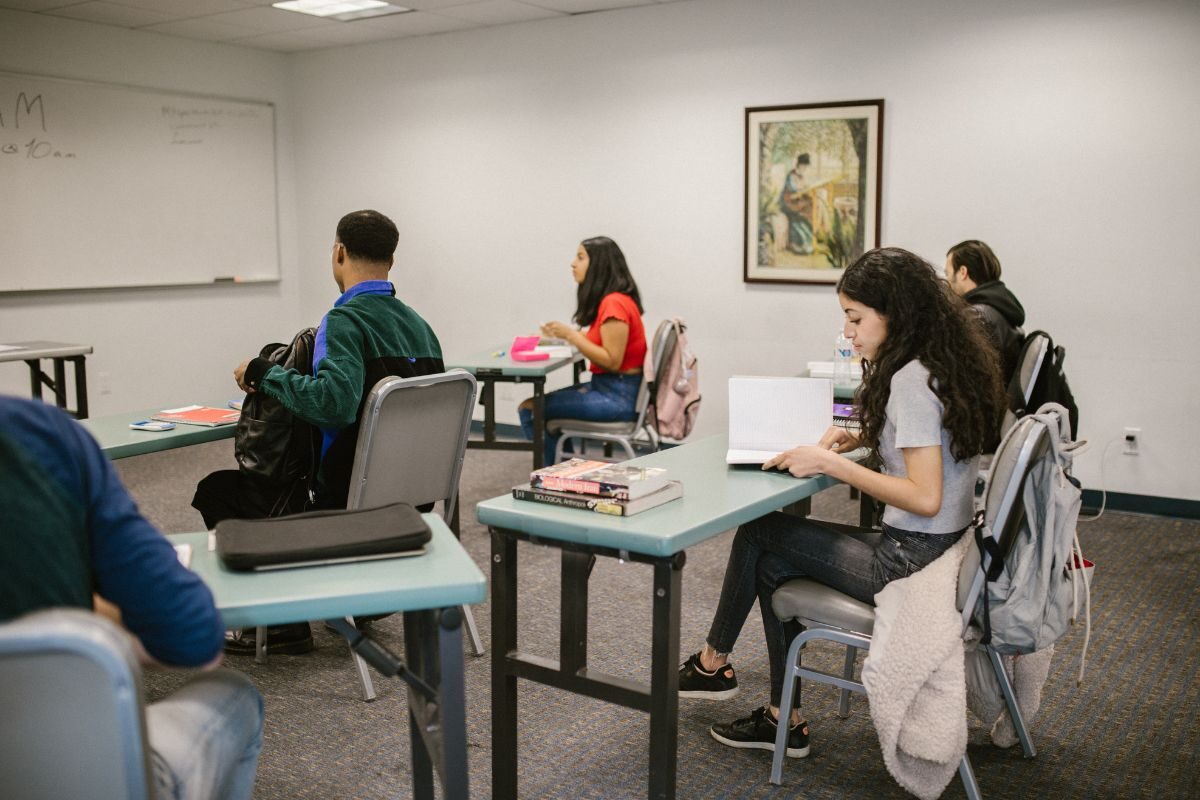Sexual harassment and abuse of female students and staff a serious problem in education, find MPs

- MPs call for specific Government strategy for engaging with boys and young men in schools on topics of sexual harassment and gender-based violence as part of RHSE review
- Relationships and sex education should be made compulsory in post-16 educational settings
- Committee calls for sufficient funding and support for teachers to deliver safeguarding effectively as well as RSHE
The Women and Equalities Committee finds that sexual harassment and sexual violence continues to be a scourge in schools in a new report published today. The Committee says it is saddening that Ofsted and the schools they inspect only acknowledged the seriousness of the sexual violence problem in schools following public testimonies of thousands of school-aged children, referring to the Everyone’s Invited movement.
Whilst Ofsted did not act quickly enough in undertaking its 2021 review, the Committee welcomes its conclusions and calls on the Government to ensure that all schools have the funding they require to safeguard children and young people effectively. It also asks Ofsted to investigate the level of abuse experienced by female staff in schools as part of its inspections.
The Committee calls for relationships, sex and health education (RSHE) be made compulsory in sixth forms and colleges. The Committee concludes that the current lack of compulsory RSHE post-16 leaves young people making their first steps in the adult world under-supported and less equipped to navigate potentially harmful and dangerous situations.
The Committee also asks the Government, as part of its RHSE review, to develop a specific strategy for engaging with boys and young men in schools on topics of sexual harassment and gender-based violence. Evidence to the inquiry suggested current relationships and sex education is less applicable and engaging for boys. It also found some schools were not sufficiently promoting gender equality or acknowledging the problem of violence against women and girls.
The Committee highlights the role of education in preventing violence against women and girls. It calls for a RSHE curriculum that places a greater focus on boys and young men. It says there should be training for all teachers how to engage boys and young men in conversations that challenge prevailing gender norms and ideas of masculinity.
The Committee says the delivery of RSHE in primary and secondary schools has been inconsistent. The report says, “in too many cases, schools lack the funding and time to deliver RSHE effectively”. MPs call for further funding and support from the Government for teachers. It also highlights that any developments in policy, as a result of the RHSE review, should support effectively the Government’s commitment to tackling sexual harassment and violence in schools and colleges.
Chair of the Committee, Rt Hon CarolineNokesMP, said:
“For far too long too many people in positions of authority have failed to notice the problem of sexual harassment in schools, of girls and female staff. It has taken the testimonies of students to prompt an official response. It is incumbent on school leaders, inspectors and the Government not to let them down.
“Whilst there have been some positive steps since the Everyone’s Invited movement exposed how widespread the problem is, there is clearly more to do to improve safeguarding and education.
“Education is a powerful tool in combatting harmful attitudes towards women and girls and preventing violence. It is crucial that mandatory relationships, sex and health education continues past secondary school. We also need a specific focus on engaging boys and young men in RHSE and we expect the Government to consider this in its ongoing RSHE review.”
Key recommendations
Relationships, Health and Sex Education
- Extend compulsory RSHE to young people in post-16 educational settings
- Develop a specific strategy for engaging with boys and young men in primary and secondary schools on the topics of sexual harassment and gender-based violence
- Ensure that teachers and teachers in training have the funding and time they require to learn how to deliver RSHE effectively
Safeguarding
- Ensure all schools have the funding they require to safeguard children and young people effectively.
- Evaluate implementation of Keeping Children Safe Education guidance in the next six months.
Technology
- Head teachers must do more to address harmful uses of mobile phones in school such as cyberflashing pornographic images or Airdropping nude images
- Strengthen Government guidance on the harmful effects of technology on attitudes towards women and girls.
Universities
- Office for Students should implement a new condition of registration to place mandatory obligations on universities to tackle sexual harassment and sexual violence
- Develop a nationwide sexual harassment and sexual violence awareness campaign that particularly targets male university students
- Compulsory evidence-based bystander intervention programmes for all first-year university students
Sector Response
Paul Whiteman, general secretary of school leaders’ union NAHT, said:
“Schools play a vital role in reducing and preventing harmful and concerning sexual behaviours among children and young people, as well as dealing with any incidents which do occur in schools. However, we need to ensure all school staff are equipped to deal with the challenges they are facing, with high-quality training, guidance on best practice approaches and sufficient support services for schools to turn to for expertise, advice, and guidance. This report notes that, in too many cases, schools lack the funding and time to deliver RSHE effectively, and we welcome the call for better funding and support.
“Of course, this is a problem that reaches far beyond the school gates. Government, health, social care, police, and parents all have a significant contribution to make too; the onus cannot just be on schools to solve.”











Responses